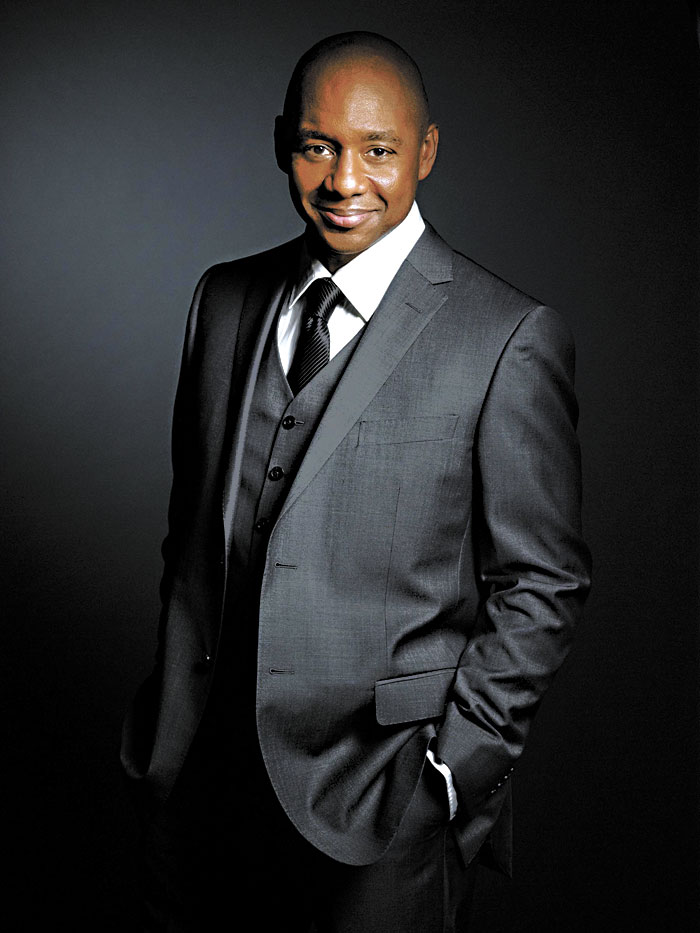Like the Allmans or the Wainwrights in their own genres, the Marsalis clan is indisputably one of the first families of jazz. Of the six sons raised by Ellis Marsalis Jr., the family’s 74-year-old patriarch, and his wife Delores, four have grown into revered jazz musicians in their own right. Among that group of middle-aged lions—Wynton, Jason, Delfeayo, and Branford—Branford is the oldest and arguably most accomplished.
When jazz was at one of its biggest crossroads in the early ’80s, Branford found a way to marry new sounds emerging from the American South (he’s a New Orleans native) and from contemporary music with more traditional jazz styles. For him, that probably wasn’t hard to do. He spent the better part of 1980 studying at the Berklee College of Music in Boston and touring Europe under the tutelage of legendary drummer Art Blakey. He ascended quickly in the jazz world as an immensely talented saxophonist, garnering acclaim by playing with everyone from Miles Davis and Herbie Hancock to Dizzy Gillespie, Wayne Shorter, and Sting by the time he was 25.
With such an impressive start, plus a pedigreed name, his status today as a jazz icon was essentially predictable 20 years ago. But he’s nonetheless worked hard to get where he is, forming numerous versions of his quartet and making a name for himself in pop circles by appearing in the early Spike Lee films School Daze and Mo’ Better Blues.
Just as Marsalis was on the verge of being pigeonholed exclusively as a jazz master, he started the hip-hop-bebop group Buckshot LeFonque, and worked as the music director for The Tonight Show with Jay Leno for nearly three years. Over the past decade, he’s delved into classical music as well, often fronting full orchestras and chamber ensembles in his spare time.
But arguably he’s made the most progress as a saxophonist and bandleader, and much of that maturity is noticeable on his group’s latest disc, Metamorphosen, released earlier this week on his own Marsalis Music label. It includes deep, introspective compositions by all four musicians: Marsalis, Jeff “Tain” Watts (drums), Eric Revis (bass), and Joey Calderazzo (piano). The only song here not written by the quartet is their cover of the Thelonious Monk classic “Rhythm-a-Ning.” It’s a complex work; instruments surge and recede, tide-like, on certain parts and disappear in others. At times, Metamorphosen is so artsy and esoteric that it easily could have been a score to an obscure Serge Gainsbourg film.
According to Marsalis, the record didn’t take nearly as long to complete as one might expect. “A day and a half,” he says via phone from his home in Durham, North Carolina. “Actually it was 11 hours. We did eight hours on the first day and three hours on the second. It’s what we do. Some guys have been practicing a couple of hours a day for the last 20 years, some for the last 10. When you think that, regardless of the genre, records in the ’50s were done in a day…whether it’s a jazz record or a Stevie Wonder record or a Marvin [Gaye] record or a Led Zeppelin record, that shit was done in a day. So to be in the studio for six months, I really don’t understand.”
It’s not just that he’s got years of experience; Marsalis’ and his quartet’s motives for making music are much different than the other pop entertainers he’s referencing. “Well, you have some entertainers who just aren’t very good musicians. And it takes them a while to get their thoughts down. If we only went on tour when we did a record, I guess we’d be in the same position. But since we tour all the time, that’s not us. Plus, really, I don’t have the kind of patience that’s required to deal with marginally talented people.”
If that sounds like arrogance, don’t feel bad. It certainly has that ring, but considering the circles the 48-year-old Marsalis has run in for the past 35 years, he’s got a right to demand the best of the best.
Metamorphosen is currently being marketed as a “milestone” record because it celebrates the 10th anniversary of the quartet’s current lineup. It’s also the seventh album they’ve released in that time period. But Marsalis doesn’t see these achievements as a big deal.
“I don’t think of it as a milestone at all,” he adds. “I had another band—we worked together, it had to be 10 years when Kenny Kirkland was in the band. He died in ’98, and he’d been in the band since ’85. If anything, it’s kind of a negative milestone, ’cause bands don’t last long any more. I have dealt with promoters willing to pay me more money to join one of these super-bands that they create. But I’m not interested.”






